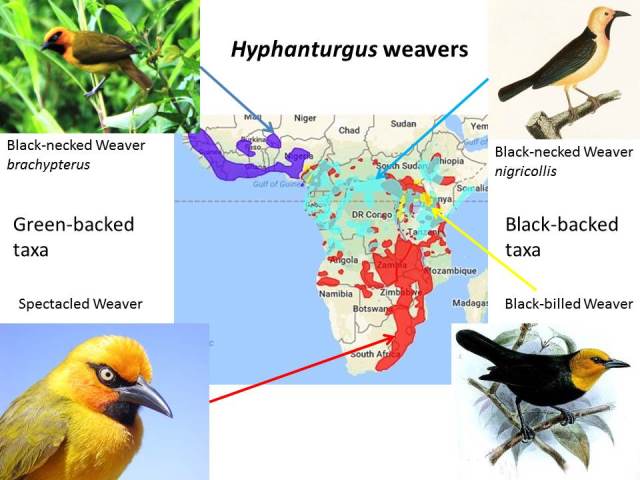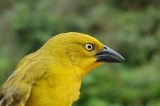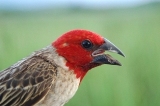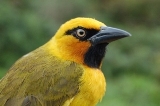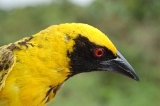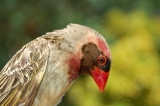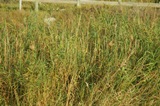Weaver species category
Choose different species category from drop-down list and press 'Go' button.'Hyphanturgus' weavers
Cabanis 1851a first used the subgenus 'Hyphanturgus', from the Greek huphaino, to weave; -ourgos, working, ie. nestbuilding activities. A variety of weavers were included in this group by different authors, the final revision being by Wolters 1982a, who upgraded this taxon to genus level and included 3 species.'Hyphanturgus' weavers:
Spectacled Weaver
Black-necked Weaver
Black-billed Weaver
Note: Two subspecies (nigricollis and brachypterus - see figure below) of the Black-necked Weaver have recently been upgraded to species level.
These weavers have black bills that are long and slender. The males have black eye lines. The sexes are alike in plumage except that the males in all these species have a black throat, which is yellow in the females. The birds have unstreaked yellow and black or olive plumages. The back, closed wing and tail are uniform olive green in 2 taxa and black in the other two.
The green-backed taxa are very similar in plumage but have distinctly different calls. The black-backed taxa differ in their underparts being yellow or black.
These weavers are usually solitary and monogamous breeders. The nest is oval and has a short or long entrance tube, and is usually placed in trees, sometimes over water. They lay two or three eggs that are blue to whitish eggs spotted with fine red speckles.
